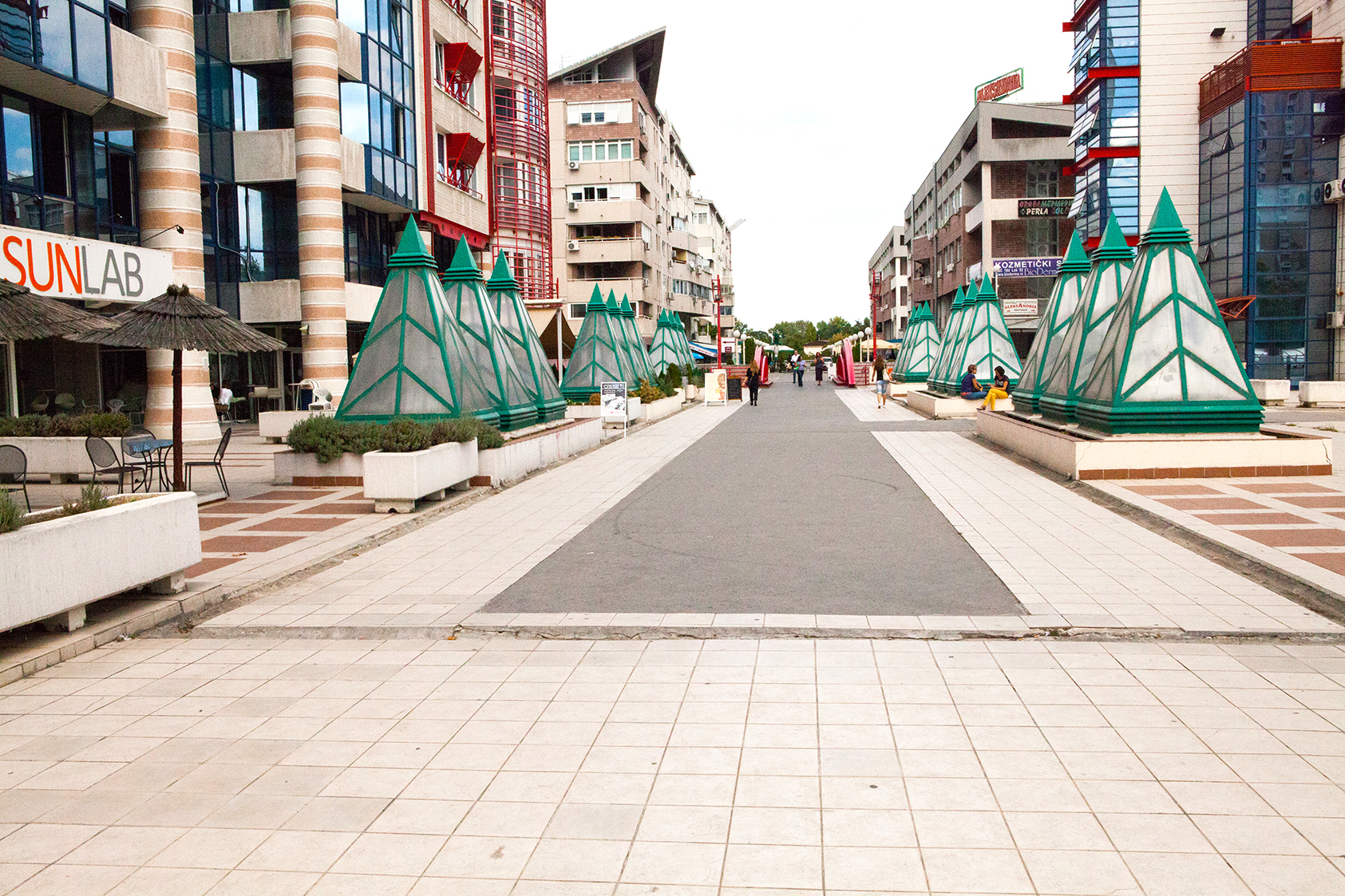Day two. Of old and new spaces, displaced and replaced people.
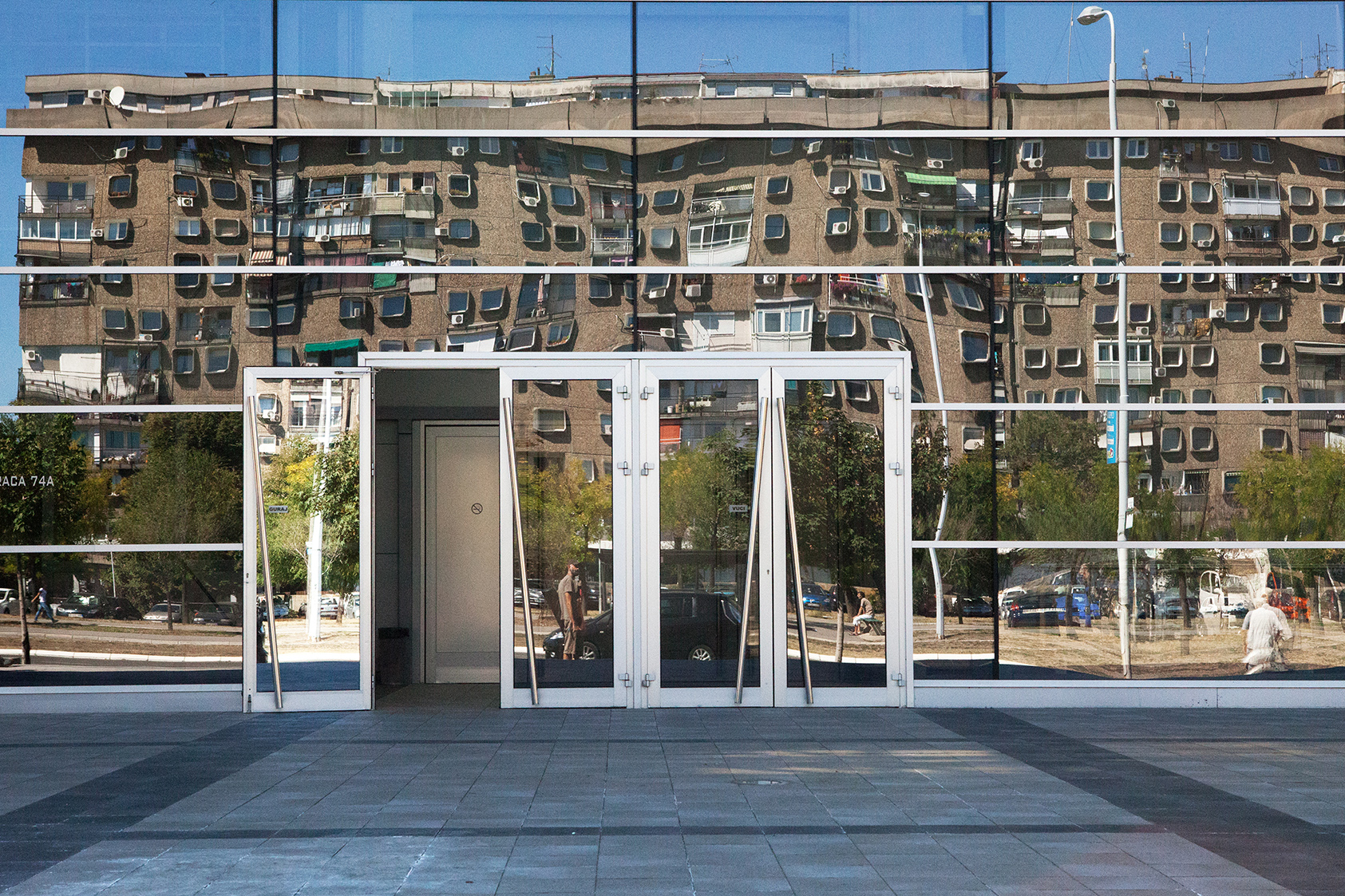
New and old typologies of public space reflected.
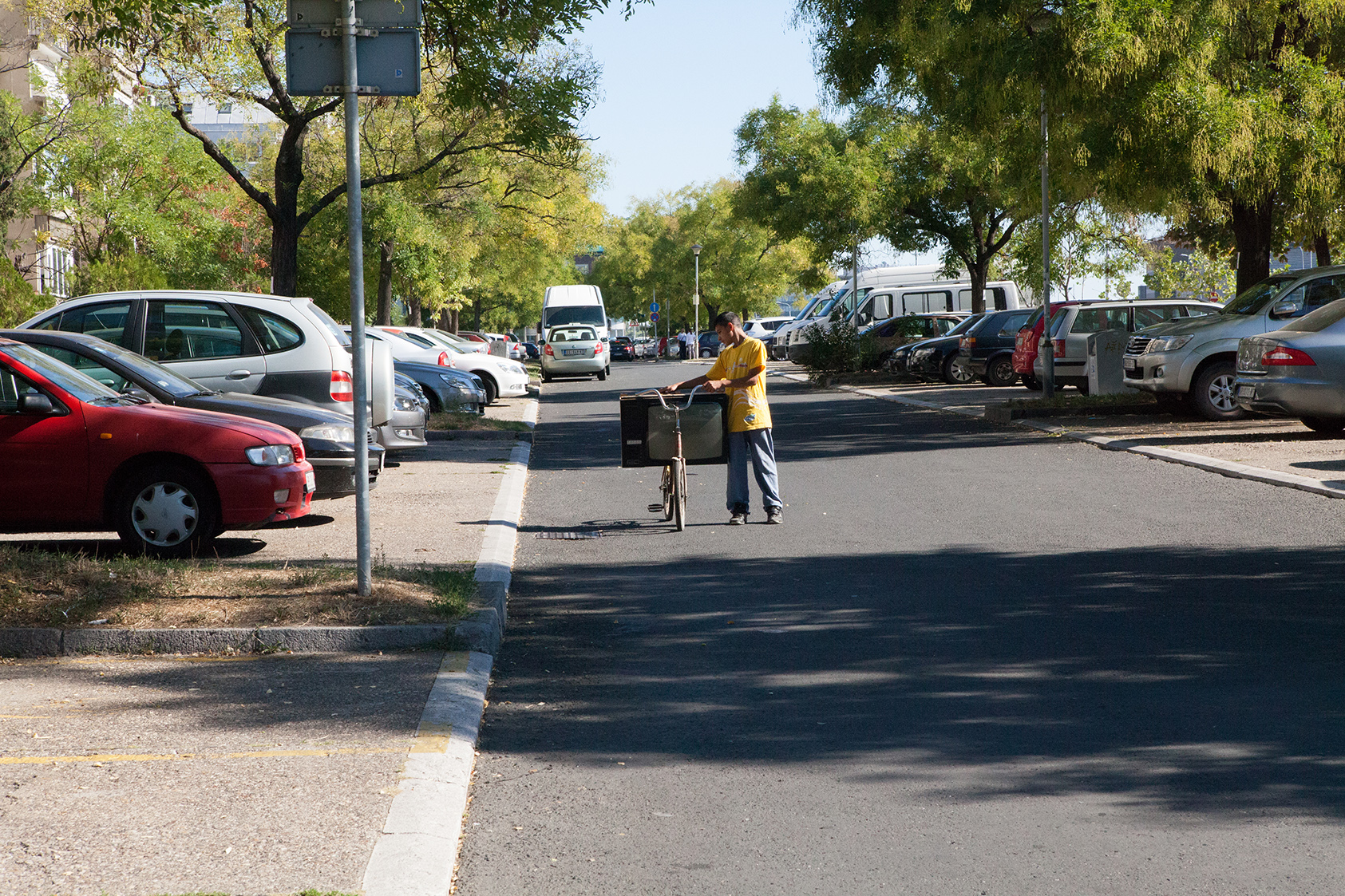
One of the few places in Novi Belgrade to have a name, aside from a number. Blok 28 is called Televizorke, because the windows look like TV sets from the 60’s.
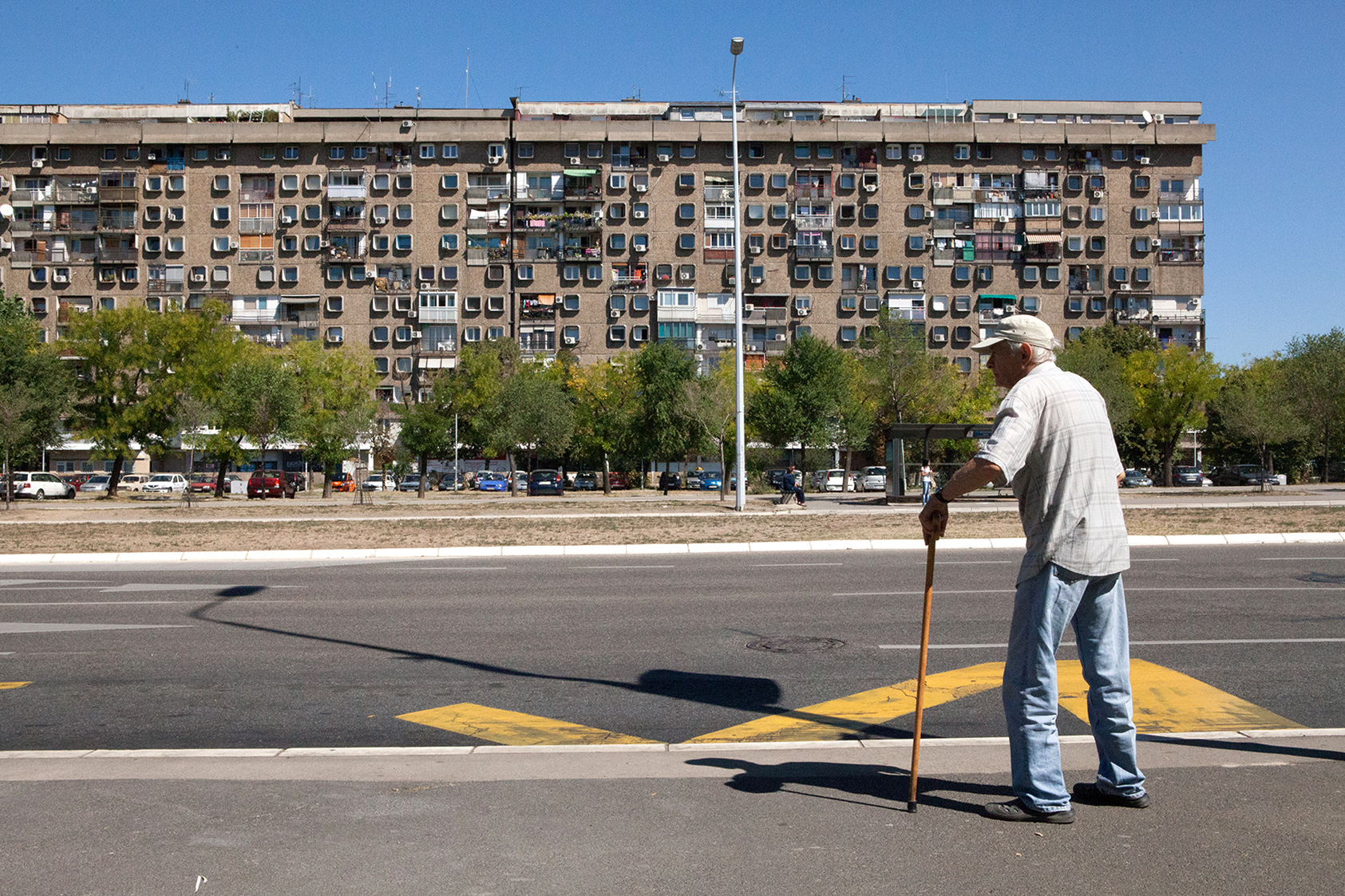
The long strips between the buildings are pedestrian areas and well-finished parks.
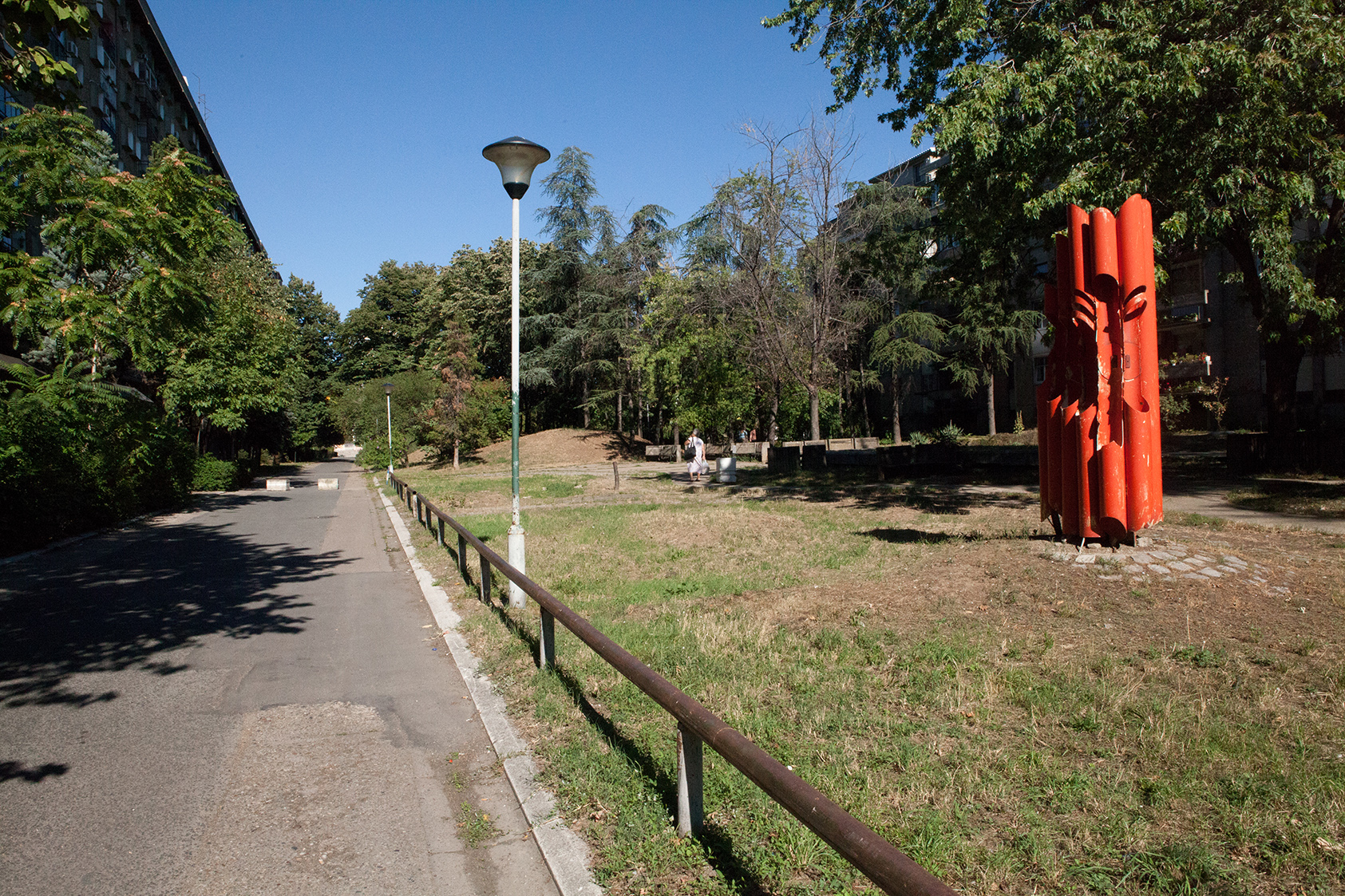
Sculptures and good design enhance the quality of public space.
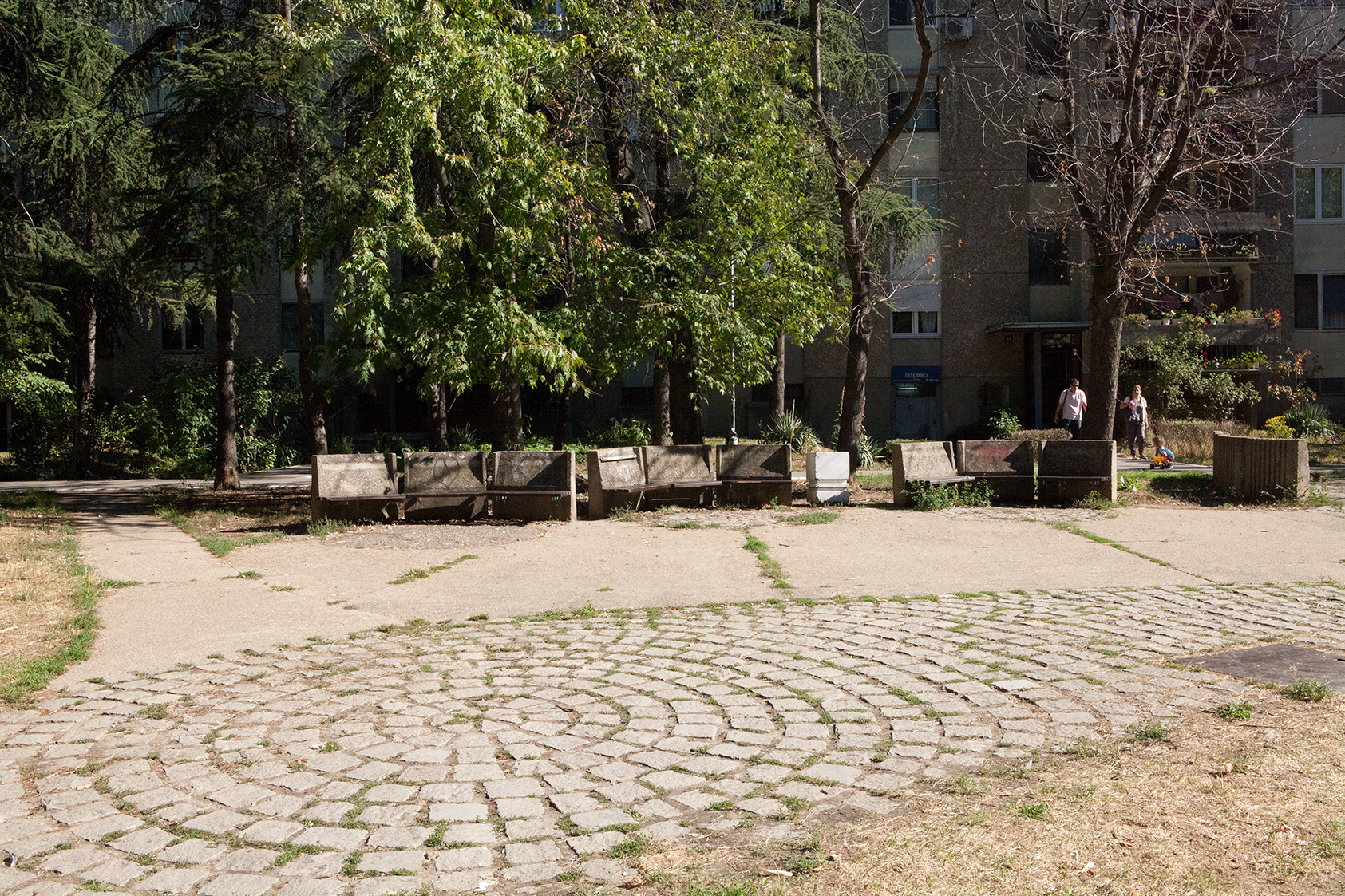
Someone provided even doghouses to guest a community of stray dogs which appears well inserted in the social milieu….
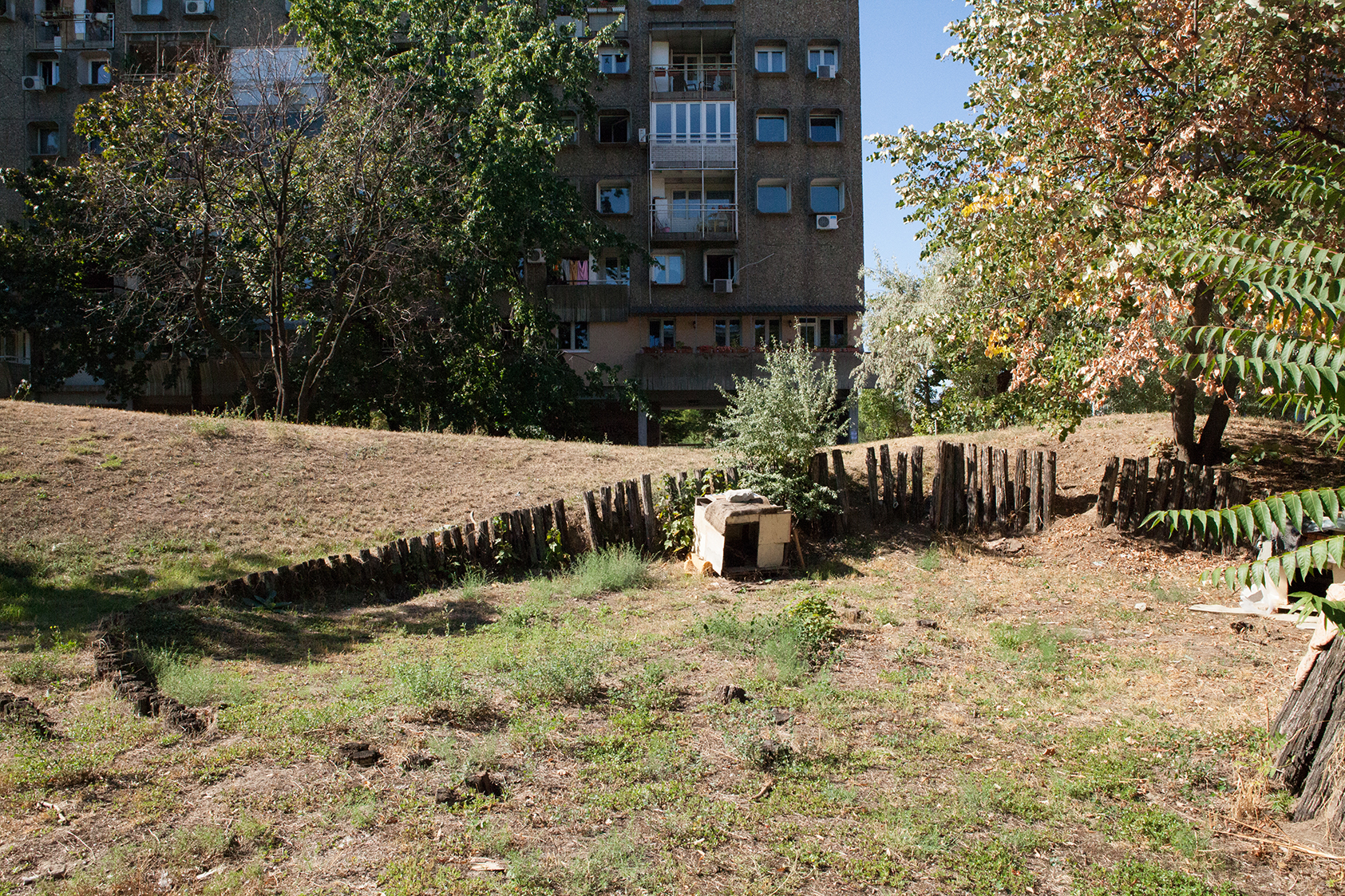
The most central part of Novi Belgrade is the one with the largest empty spaces, crossed by main axes, highway, tramways and railroad, where public services were planned and never realised. Today is the field where new developments are taking place, international hotel chains and shopping malls. It is where the public space appear less pleasant and vibrant, and yet where the space is alive is threatened to be cleared off…
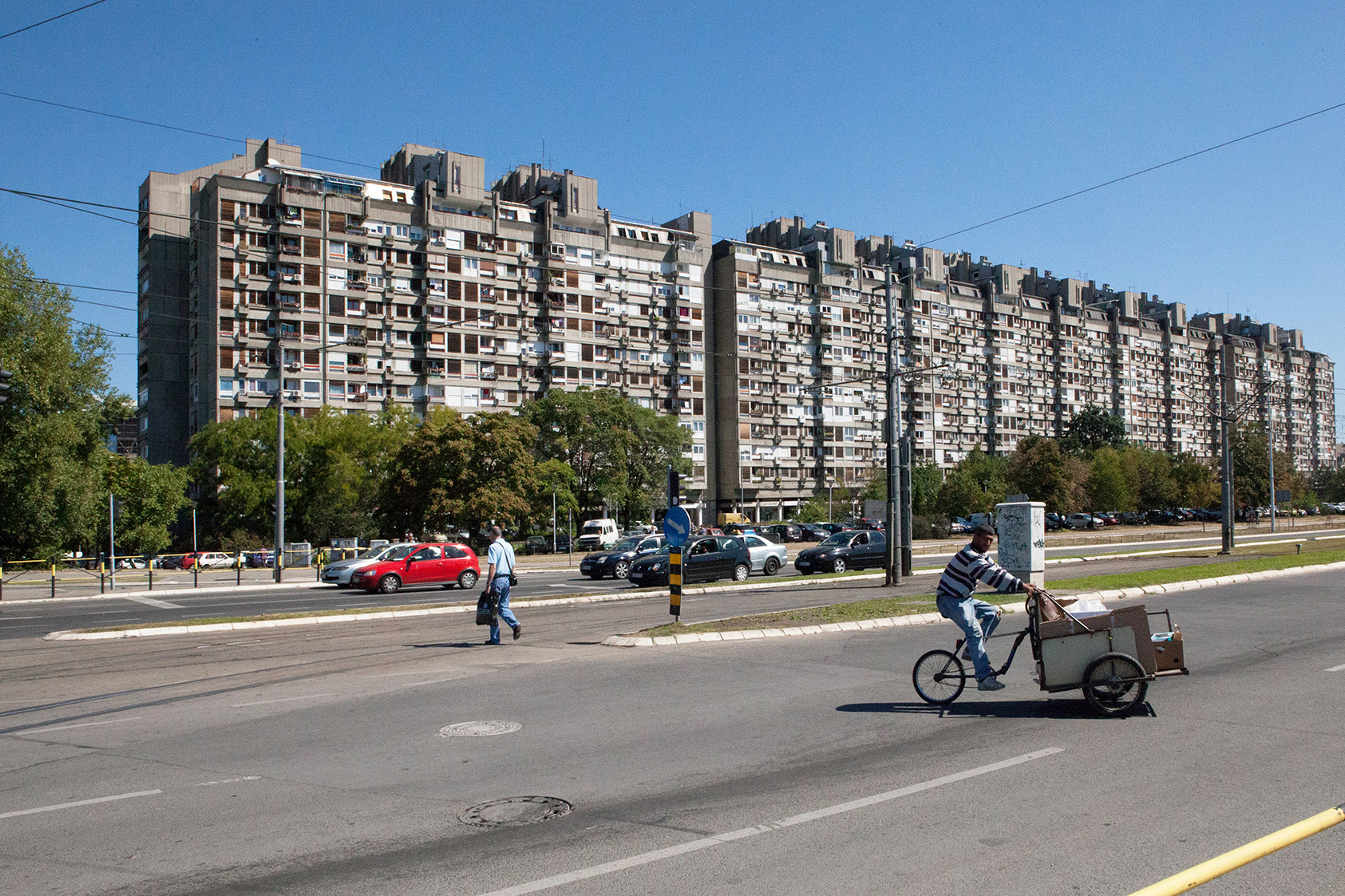
The hardware market of Novi Belgrade and the informal street market surrounding it are in a central plot enclosed by the highway and the railroad, an area subject to transformation, encircled by building sites. What could be understood as a social activity at the core of urban life, everyday commerce, appears in fact marginalised in a precarious position, in a temporal fringe waiting for redevelopment.
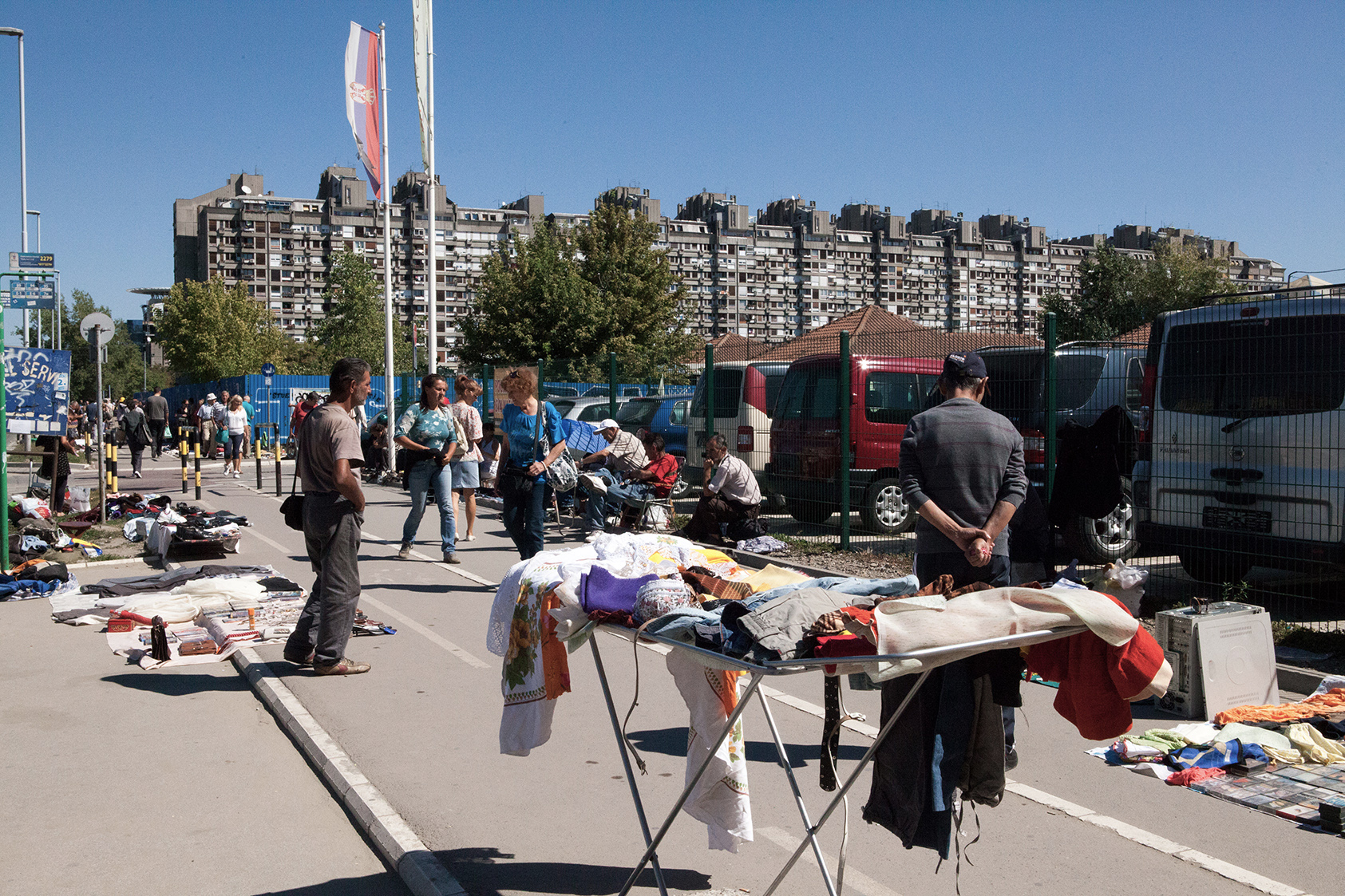
When I was here three years ago, this area under the bridge was the main Roma settlement of Belgrade. Today the area has been cleaned up. Where are they living now?
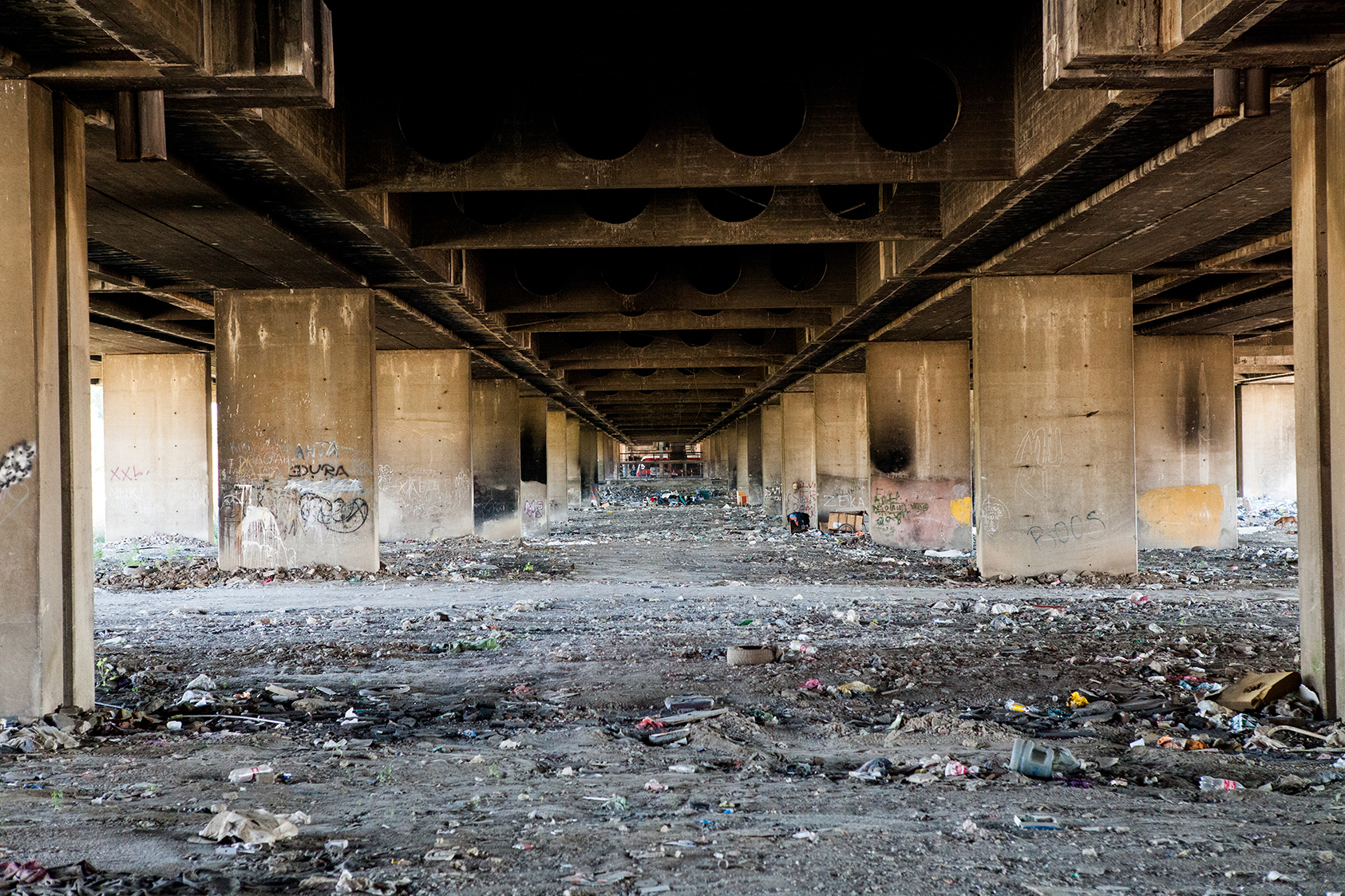
Coming back towards the river, a glance at more recent developments. I find even superfluous to spend words on the quality of the overloaded public spaces…
